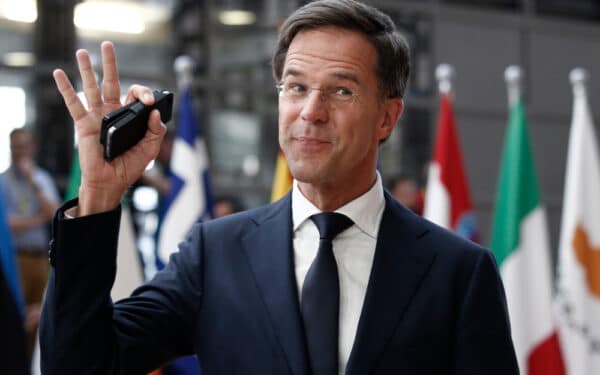When Rishi Sunak first met his Italian counterpart, Giorgia Meloni, on the sidelines of Cop27 in Egypt, there was talk of an instant “chemistry”. And, judging from the latest pictures in Vilnius, the spark has not faded.
Last night, the pair was spotted giggling over some seemingly hilarious content on Meloni’s phone, as they made their way to dinner at the NATO summit in Lithuania.
While some deem Italy’s controversial leader to be unsavoury company, it seems she is fast becoming Sunak’s bestie. Witness the equally chummy snaps of them chuckling together at the G7 in Japan or the two sharing a tender moment on the steps of Number 10.
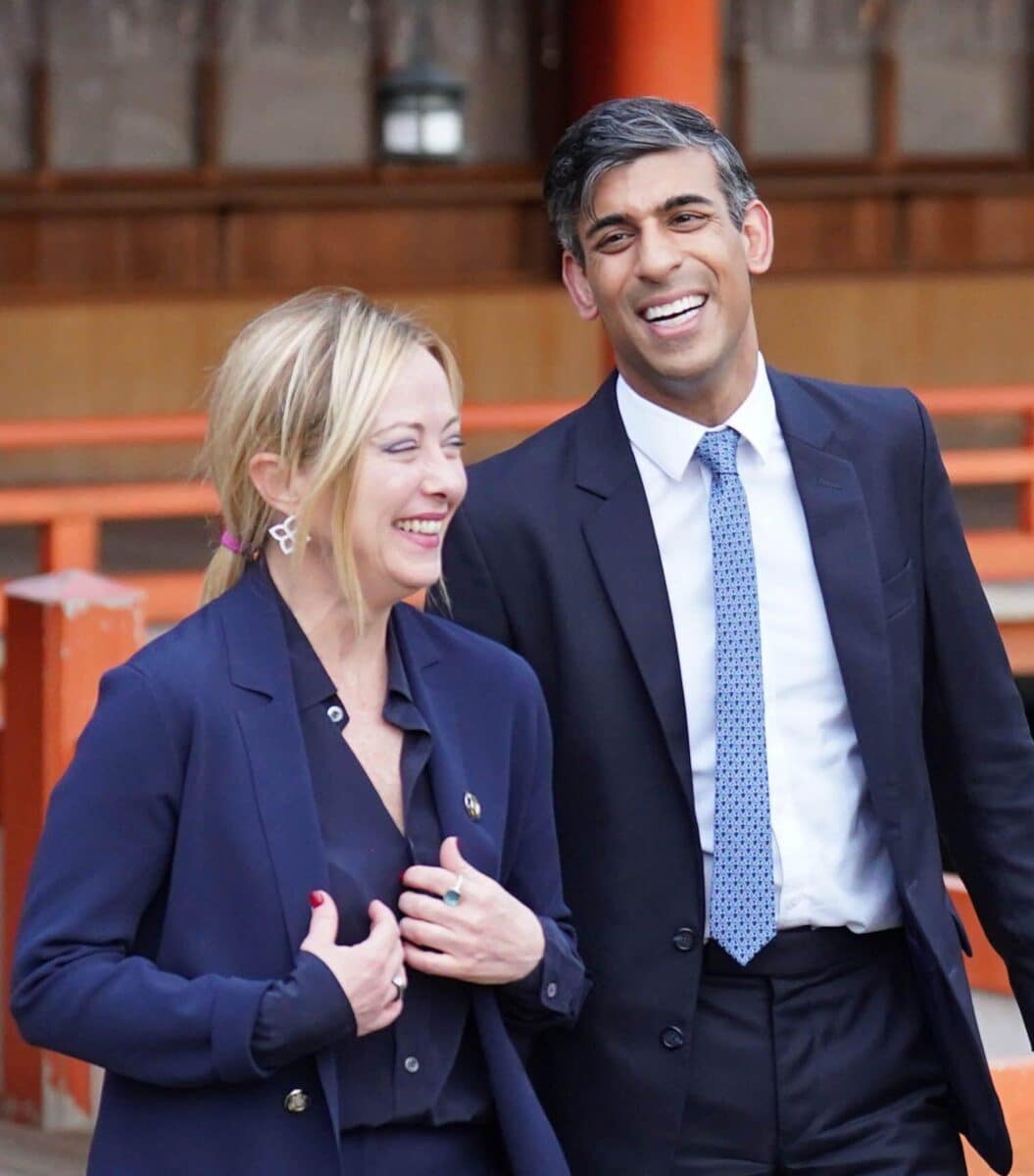
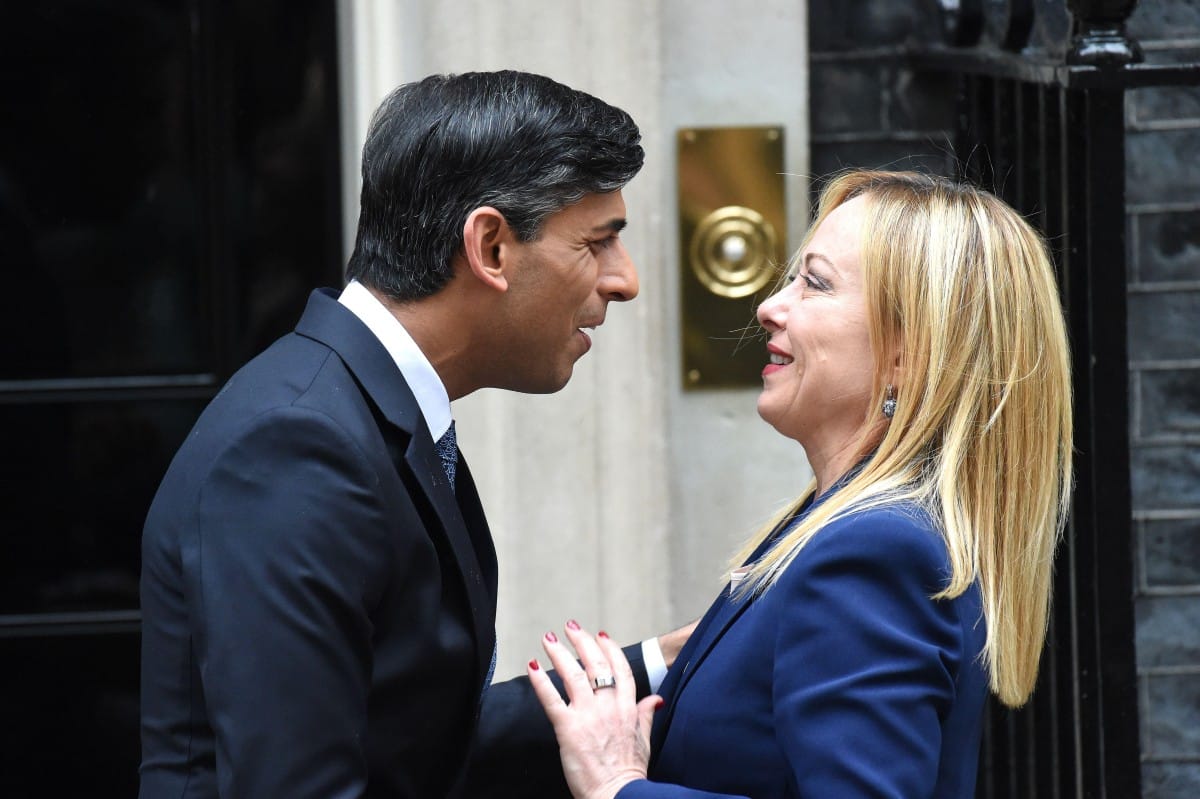
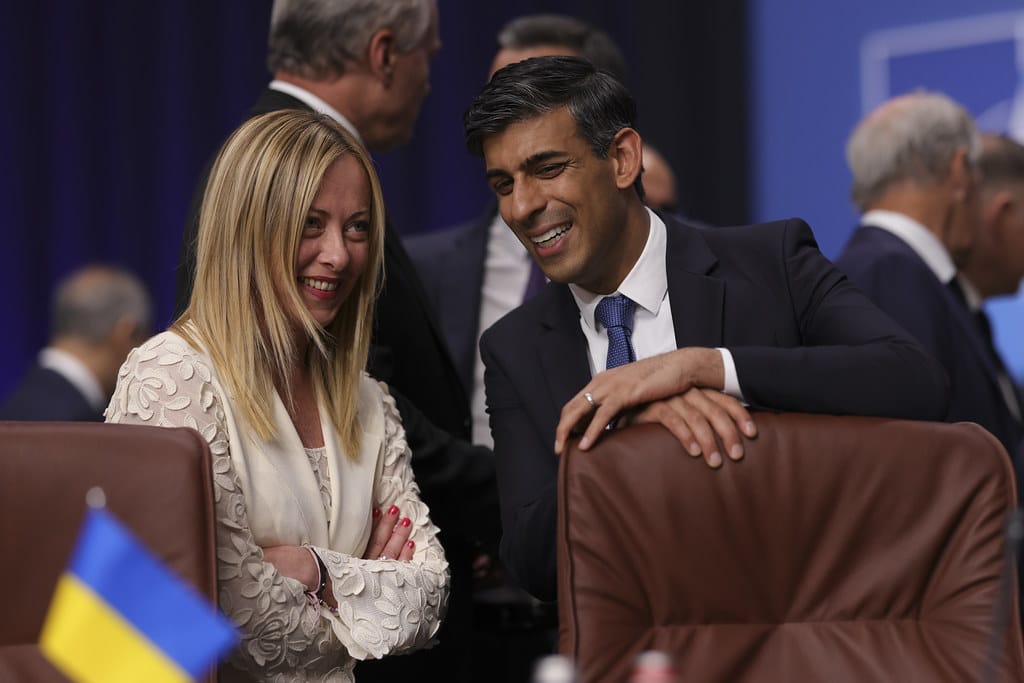
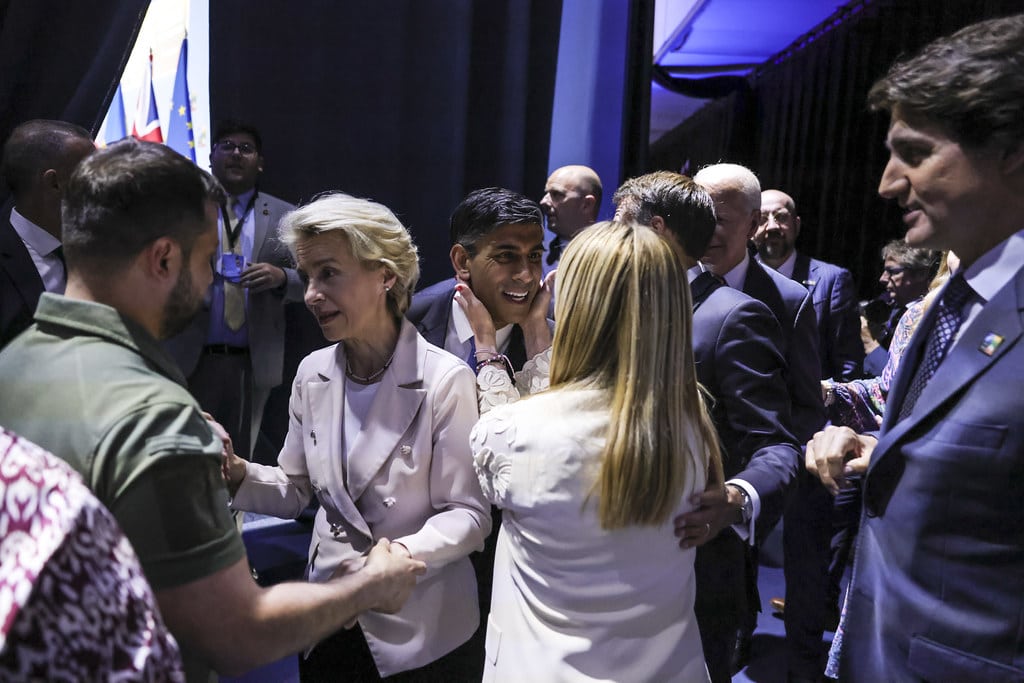
Admittedly, when it comes to photographs of world leaders, looks can be deceiving. Behind the friendly handshakes and posed back pats often lie fraught bilateral tensions.
Yet warm moments between Sunak and Meloni somehow appear more genuine. Indeed, Sunak’s awkward body language seems to instantly dissolve within the presence of the Italian PM.
Why does Meloni put him at ease?
She’s not the most obvious European chum for Sunak. Bar the Anglo-French rivalry, Macron is the sort of leader one might imagine the PM to share a more natural affinity with: both being centre-right, technocratic leaders and former investment bankers.
Meloni and Sunak share a very different background, on both a personal and political level.
While the wealthy, privately educated Sunak is often accused of being “out of touch” with the common people, Meloni was brought up by a single mother in a working-class Rome suburb.
Politically, their backgrounds diverge too – thanks to Meloni’s fascist roots. At just 17, she was an activist with the youth wing of the Italian Social Movement, founded by supporters of Benito Mussolini after World War II to keep the memory of his Fascist Party alive. More recently, the Brothers of Italy party Meloni co-founded in 2012 has been accused of clinging to nostalgia for a fascist past, by embracing, for instance, the tri-color flame symbol associated with Mussolini himself.
Yet Meloni and Sunak share some common ground too.
Timing, for starters. The two forty-somethings came to power within just three days of each other. And despite their seemingly different social backgrounds, both are – in a sense – outsiders. Meloni is Italy’s first female Prime Minister while Sunak is Britain’s first from an ethnic minority.
On family matters, Meloni is more conservative: while Sunak endorses gay marriage and adoption, her government has blasted the “LGBTQ lobby” as a threat to the Italian way of life and told city councils to stop registering same-sex parents’ children. That said, both are religious – Meloni a Catholic and Sunak a devout Hindu – in a cohort of increasingly secular European leaders.
The pair also share a distrust of the European Union yet appear to have softened their eurosceptic stance more recently: Meloni is no longer in favour of Italy leaving the EU while Brexiteer Sunak has made efforts to repair relations with Brussels through the Windsor Agreement.
Meloni has also moved closer to the centre and sought to re-position herself as a mainstream right-winger. As a result, it seems Sunak doesn’t share the wariness among many European politicians that cosying up to Meloni equates to an endorsement of fascism.
Perhaps most crucially of all, the two have also bonded over their shared aversion to small boat crossings. Indeed, despite Meloni being branded a far-right candidate, when it comes to immigration policy, there is not much setting the two apart.
On her visit to Downing Street in April, the Italian PM praised Sunak’s Illegal Migration Bill, declaring that Britain and Italy are “very aligned” in values. Like Sunak, she has faced opposition from both the courts as well as from human rights groups as she seeks to introduce tougher policies to crack down on asylum seekers.
What might the pair have bonded over in Vilnius yesterday? Perhaps the news that Sunak’s Illegal Migration Bill survived yesterday’s mammoth voting session?
Write to us with your comments to be considered for publication at letters@reaction.life




